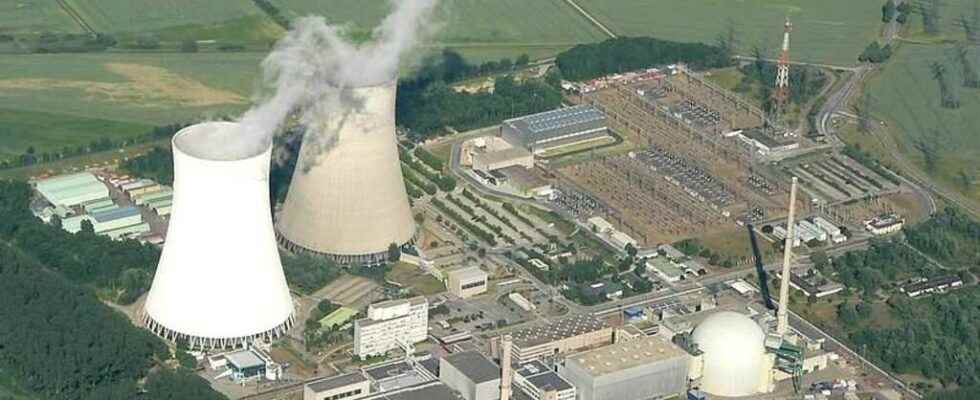Will Germany question, or in any case postpone, the exit from nuclear power? Faced with the current energy crisis, many taboos are being called into question in a country where dependence on Russian gas is forcing radical changes in an emergency, and sometimes painful reconsiderations.
From our correspondent in Berlin,
Nuclear hostility has a long history in Germany summed up in the slogan ” Atomkraft, nein danke! (Nuclear, no thanks!) very popular in the past. More than twenty years ago, the abandonment of nuclear power was negotiated by the left-wing government of Gerhard Schröder, in which the Greens participated. After the Fukushima disaster, the Merkel government, which had opted for longer use, backtracked.
Abandoning nuclear power is therefore scheduled for the end of 2022. Today, three power stations are still in operation and produce 6% of Germany’s electricity. But as renewables grow in importance, cheap Russian gas was expected to meet Germany’s needs next to coal that the current government wanted to abandon if possible by 2030.
energy stalemate
This equation has been fundamentally called into question with the war in Ukraine and the desire to give up Russian gas in the medium term. But with the energy impasse becoming more and more serious, any additional resource is good to take, such as all-out energy savings.
Nuclear does not weigh heavily, but it can, at the margin, save on gas consumption, especially if Moscow ceases all deliveries. Within the coalition, the Liberals are pleading for a reprieve for the centrals that are still active. The Christian Democrats are also in favor of it. Some even plead for a reactivation of the three power plants shut down at the end of 2021.
The Social Democrats are against a nuclear reprieve. And for the greens, for whom the rejection of this source of energy is in their DNA, it is a huge taboo. They have already accepted out of pragmatism a greater use of coal in recent months and the import of shale gas which produces CO2, but sacrificing the nuclear taboo is even more difficult. Some would not rule out at least a reprieve for a power station in Bavaria.
Many obstacles
Beyond the ideological dimension, is such a project feasible? Because there is first a legal problem. Current power plants are no longer allowed to operate after December 31. But a law can be changed.
The companies concerned are skeptical and do not burn with impatience to continue the activity of their power stations. There is also the problem of the fuel which is at the end of its course. We can use it at best for a few months, but beyond that, we would have to buy some. An option that can take months and be expensive.
There are also maintenance issues. The still active plants should have already been overhauled, but as they were to stop, the last planned overhaul was not carried out. And this kind of operation normally lasts for months.
Many technical questions therefore arise. The government, after a first study in the spring, has launched a second to define whether in an acute energy crisis, the country can do without nuclear power or not. The answer should normally be communicated by the end of the month.
